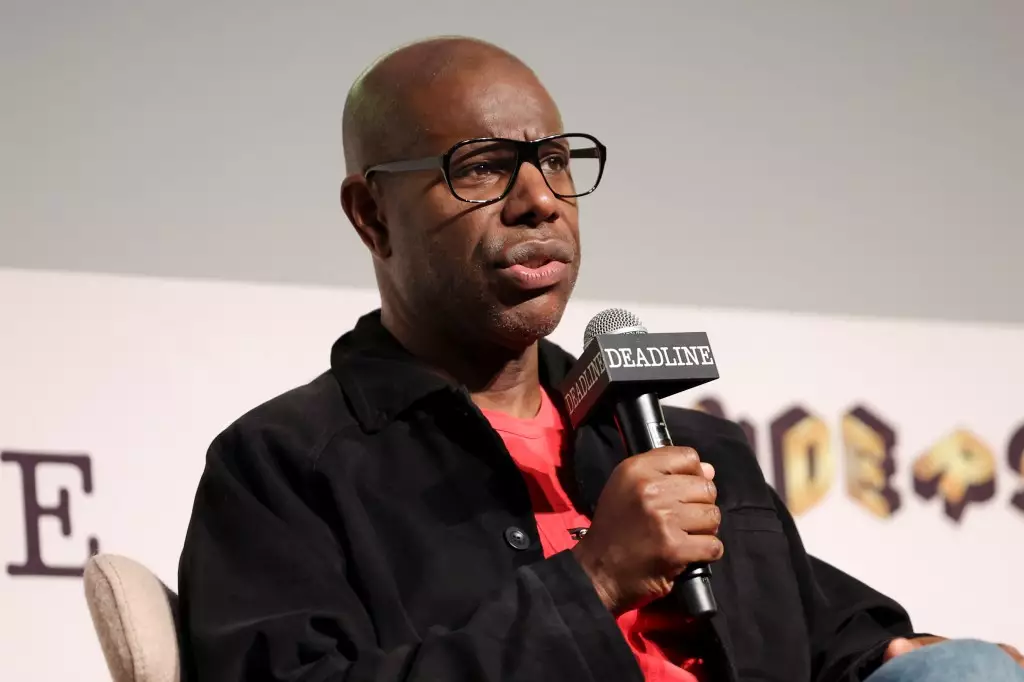In the realm of cinematic storytelling, World War II has frequently been depicted through a variety of lenses, exploring the nuances of heroism, sacrifice, and loss. Yet, director Steve McQueen’s latest offering, *Blitz*, takes an unconventional approach by framing this tragic chapter of history through the eyes of a child. This artistic decision not only invites audiences to engage with the depth of war’s impact on the innocent but also prompts pertinent reflections on adulthood and the fading of childlike wonder.
McQueen shares a poignant insight regarding the loss of curiosity that often accompanies growing up. Reminiscing about his daughter’s innocent fascination with simple things, such as a leaf, he points to the deterioration of our ability to see the world with fresh eyes. By grounding *Blitz* in the experiences of nine-year-old George, portrayed by Elliot Hefferman, the film challenges viewers to revisit familiar narratives from a novel standpoint. It grapples with the essence of war—pain, despair, and separation—but through the fragile lens of childhood, each moment takes on an added weight and bittersweet poignancy.
At the crux of *Blitz* is the journey of young George, a boy forcibly separated from his mother, Rita (Saoirse Ronan), amidst the chaos of wartime London. Faced with a directive to seek safety in the countryside, George rebels against the circumstances that threaten to tear him away from his family. His journey is not merely a physical one, but an emotional odyssey that explores themes of longing and resilience. The narrative effectively captures the turmoil of a child caught in the crossfire of a world unraveling, further emphasizing the stark contrast between innocence and the horrors defining broader adult experiences.
The film serves as a reminder of the impact of war on the young and vulnerable, whose perspectives can often be overlooked amidst larger discussions of conflict and strategy. McQueen’s choice to depict George’s defiance and determination introduces a sense of hope while painting an unfiltered picture of fear and uncertainty that children might experience during tumultuous times. It nudges the audience to confront the cost of war, not only in terms of physical destruction but also in relation to the psychological scars left on its youngest victims.
To authentically capture the characteristics of wartime London and the contours of a fading Cockney accent, Ronan immersed herself in extensive dialect training. The actress’s commitment to reviving a nearly lost way of speaking enriches the film’s narrative, imbuing it with a sense of realism. This attention to detail goes beyond mere performance; it underscores how language and identity are inextricably linked, especially during periods of significant societal upheaval.
Ronan’s comments highlight the importance of portraying working-class women from that era, whose resilience defined much of the wartime spirit. By showcasing these characters, *Blitz* invites reflection on the strength and resolve of those who faced unimaginable challenges with grace and dignity. This nuanced representation adds depth to the storytelling, ensuring that the sacrifices of everyday people are not rendered invisible in the broader context of history.
In *Blitz*, McQueen not only revives the historical discourse around World War II but does so by entwining it with the fragile innocence of childhood. His exploration of themes around perception and the loss of wonder encourages viewers to reconsider how we interpret and recollect historical narratives. Ultimately, the film serves as a call to revisit our sense of curiosity and our ability to see the world anew. By harnessing the unfiltered lens of a child’s experience, *Blitz* provides a crucial reminder of the impacts of war that persist to this day, reverberating across generations and challenging us to reflect on what we have lost along the way.

Leave a Reply